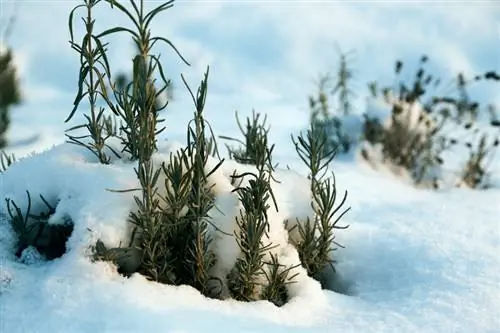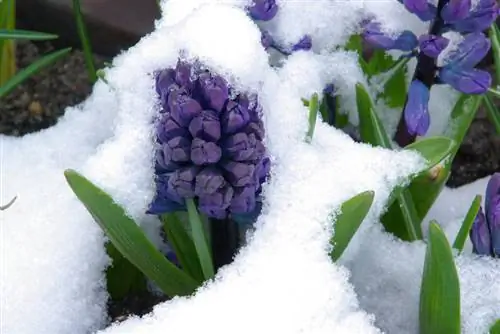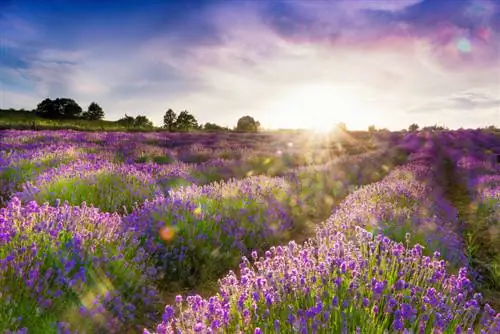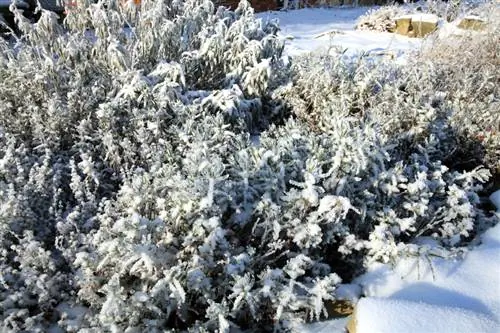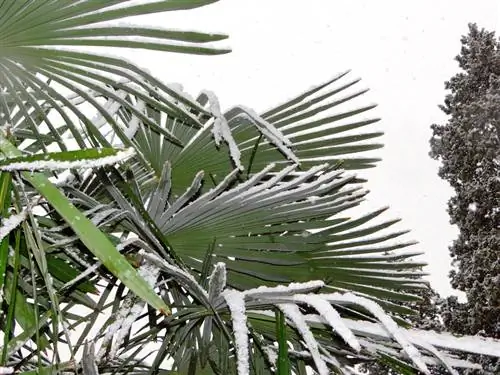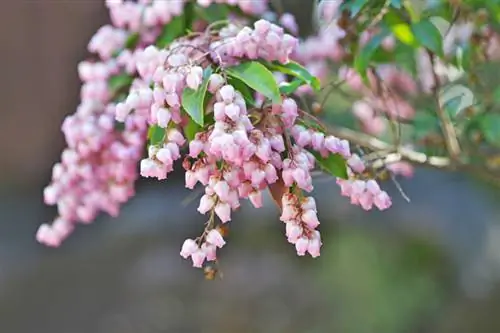- Author admin [email protected].
- Public 2023-12-16 16:46.
- Last modified 2025-01-23 11:20.
The blue-violet flowering real lavender (Lavandula angustifolia) originally comes from the Mediterranean climate zone, where it is perfectly adapted to mild temperatures and high drought. Nevertheless, the medicinal plant is considered hardy, especially in comparison to other types of lavender - but not in all regions and in all weather conditions. It is usually not the low temperatures that are fatal to the plant, but rather excessive humidity.
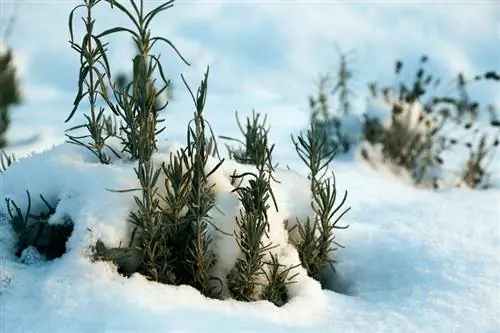
Is real lavender hardy?
The real lavender (Lavandula angustifolia) is considered hardy, can tolerate temperatures down to -15° C for a short time and can overwinter outside in many regions. Excessive humidity or frost when exposed to sunlight are more problematic, so a sheltered location is recommended.
Special winter hazards
Basically, real lavender is considered hardy for temperatures down to -15° C, as long as the plant is only exposed to this for a short time. More problematic than low temperatures, however, is excessive humidity, for example in mild but very wet winters. Since lavender is more used to dry conditions, excessive wetness can lead to rot and thus the death of the plant. For this reason, lavender should not be mulched because the mulching material retains moisture instead of draining it away. However, it makes more sense to plant the lavender in a protected place.
Frost=danger of drying out
The opposite problem arises when the plant is exposed to frost and bright winter sun at the same time - the lavender can dry out because its roots can no longer absorb water in the frozen earth, but at the same time more water is evaporating through the leaves. Here too, a protected location and, if necessary, a cover with spruce or fir branches are the best solution.
Winter hardiness of other types of lavender
Although real lavender is considered more or less hardy, other types of lavender are not. You can see how sensitive which lavender is and which winter protection is recommended in the table below.
| Lavender style | Latin name | Winter hardiness | Winter protection |
|---|---|---|---|
| Real Lavender | Lavandula Angustifolia | up to -15° Celsius | recommended |
| Provence lavender | Lavandin | short-term up to -10° C | recommended |
| Plavendel | Lavandula stoechas | conditionally | under cold house conditions |
| Woolly Lavender | Lavandula lanata | conditionally | under cold house conditions |
| Speiklavender | Lavandula latifolia | no | under cold house conditions |
| Oregano-Lavender | Lavandula multifida | no | under cold house conditions |
Tip
As a rule, it is sufficient to plant the real lavender in a protected corner and cover it with spruce or fir branches. You don't have to worry, especially if there is snow, the snow cover acts as a thermal insulation fleece and ensures an easier winter than dry frost.

